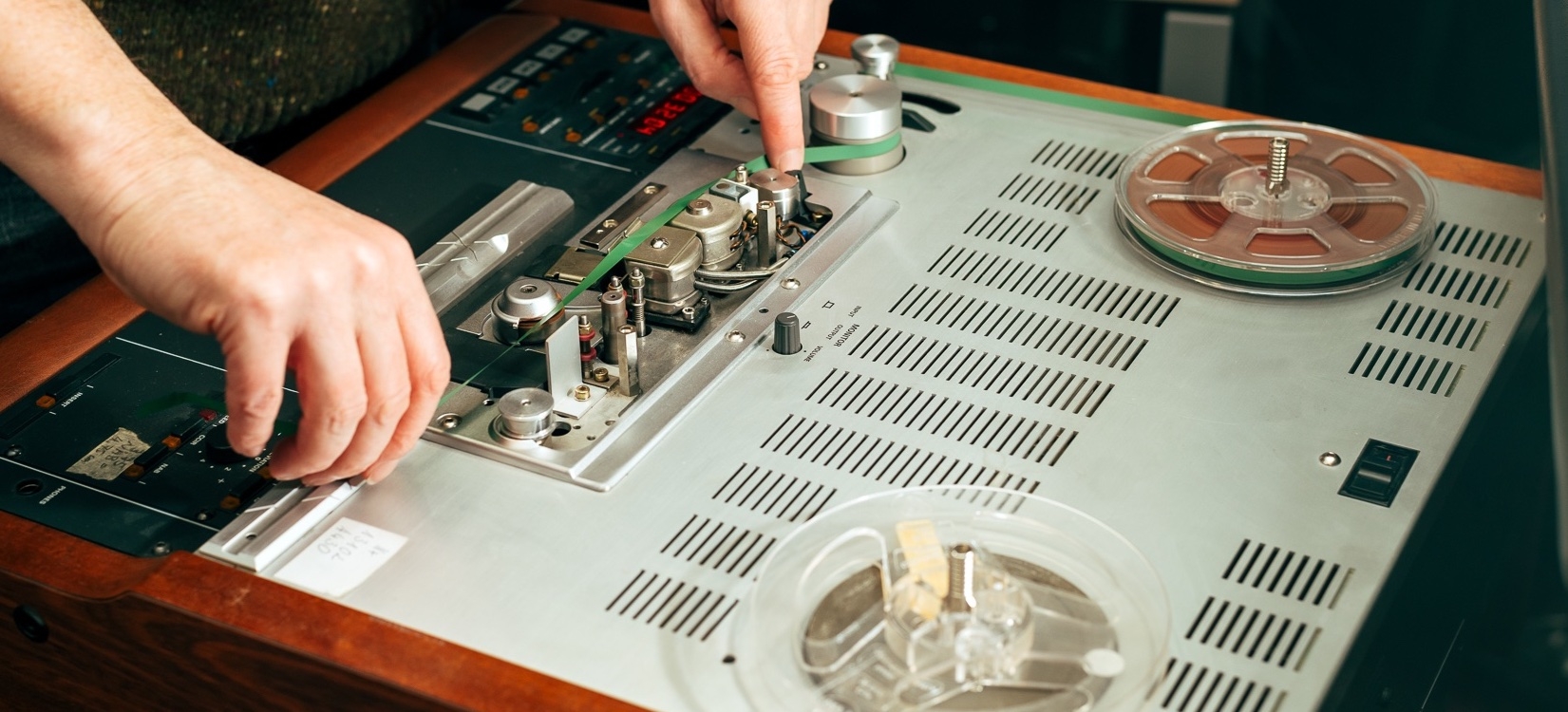In April 2024, the Phonogrammarchiv of the Austrian Academy of Sciences (OeAW) turned 125. Official celebrations have been postponed to 2025, however, as the archive is already busy preparing for a long-awaited move to new premises after almost a century in its current location. The move to the former home of the OeAW’s Stefan Meyer Institute for Subatomic Physics in Vienna’s 3rd district will come with greatly improved facilities: Not only will the Phonogrammarchiv have enough room to keep all its collections in its own storage space, it will also have more studios for the digitisation of historical recordings. Moreover, a chemical lab plus restoration workshop will provide a better basis for projects researching the materiality of sound and video carriers. In general, at its new premises, the Phonogrammarchiv will have a more user-friendly layout, more room for hosting guest researchers, and more space for offering trainings.
Since our last contribution to Tour de CLARIN in 2020, several new funding projects have enabled the Phonogrammarchiv to greatly improve its technical infrastructure by adding state-of-the-art cylinder and wire transfer machines to its equipment park. Among these projects is an infrastructure and capacity-building project with the Academy of Sciences of the Republic of Uzbekistan and two German partners, funded by the Volkswagen Foundation: ‘The Fonoteka of the Uzbek Academy of Sciences’ Institute for Art Studies – a Trilateral Infrastructure and Capacity Building Project (D-UZ-A)’, which involves training and supporting the Uzbek partners in digitising and cataloguing a unique archive of historical sound carriers with research recordings from the 1930s to 1990s in Tashkent.

Similarly devoted to infrastructure and training is the project ‘Applied / Experimental Sound Research Laboratory (ÆSR Lab)’, a three-year cooperation between the Phonogrammarchiv, the University of Applied Arts Vienna and the University of Music and Performing Arts Vienna. Funded by the Austrian Ministry for Education, Science and Research, the project cooperates in the establishment of easily accessible technical infrastructures for various forms of research into sound. According to its special expertise, the Phonogrammarchiv contributes to the tripartite lab structure of this project with a 'Field Recording & Digitisation/Restoration Lab'.
In the sphere of heritage science, the Phonogrammarchiv is one of three partners in a cooperation project that explores the materiality as well as the cultural meaning of analogue sound carriers used for audio letters in the 20th century: ‘Sonic Memories: Audio Letters in Times of Migration and Mobility (SONIME)’. Among other equipment, the project has allowed the Phonogrammarchiv to acquire an Fourier-transform infrared spectroscopy (FTIR) device, which greatly improves the analysis facilities the archive can offer in the realm of material science.
Besides these more technically-oriented projects, the Phonogrammarchiv continues to be involved in various projects and initiatives that aim at the critical contextualisation and (re-)circulation of its collections. Here, the Phonogrammarchiv has supported efforts by communities to offer local or online access to audio resources linked to their history, such as the Virtualni arhiv Stinjaki|Virtual Archive of Stinatz or the Burgenlandi Magyar Kultúrlevéltár|Burgenlandian-Hungarian Cultural Archive. This is also the sphere of activity which the interview following this text focuses on: Fayrouz Kaddal speaks about her project on Anna Hohenwart-Gerlachstein’s recordings from historical Nubia.
Some of the Phonogrammarchiv’s own recent initiatives in the sphere of critical contextualisation and (re-)circulation have been a project on the archival traces of Rudolf Pöch’s Papua New Guinea recordings (1904–1906) and the colonial context of their production, as well as the decision to go online with the edition series ‘The Complete Historical Collections 1899–1950’ after 25 years on CD format. The first edition in new form will have a focus on linguistics with ‘Adolf Dirr’s Recordings from the Caucasus (1909-1910)’ scheduled to be published in 2025 in English and Georgian. Another project with a focus on language and linguistics, which has been one of the Phonogrammarchiv’s main collection fields since its founding in 1899, is a cooperation with the Austrian Centre for Digital Humanities and Cultural Heritage (ACDH-CH) at the OeAW, which engages with Austrian dialect recordings and is devoted to improving its metadata and accessibility.
In the field of academic events, in 2024 the Phonogrammarchiv launched its new series of Advanced Seminars, which will annually bring together a group of experts on topics relevant to the various fields of its own archival practice. The inaugural Advanced Seminar in 2023 was devoted to ‘(Re)Contextualising and Recirculating Historical Sound Recordings: Experiences and Approaches’, with Fayrouz Kaddal, interviewee in the following section, among the invited participants. Its next edition will, according to current plans, have a focus on the nexus of the digital and the analogue, as well as questions of sustainability. In addition, 2025 will see the Phonogrammarchiv celebrate its 125+1 anniversary – and its move to new premises – with an international symposium.